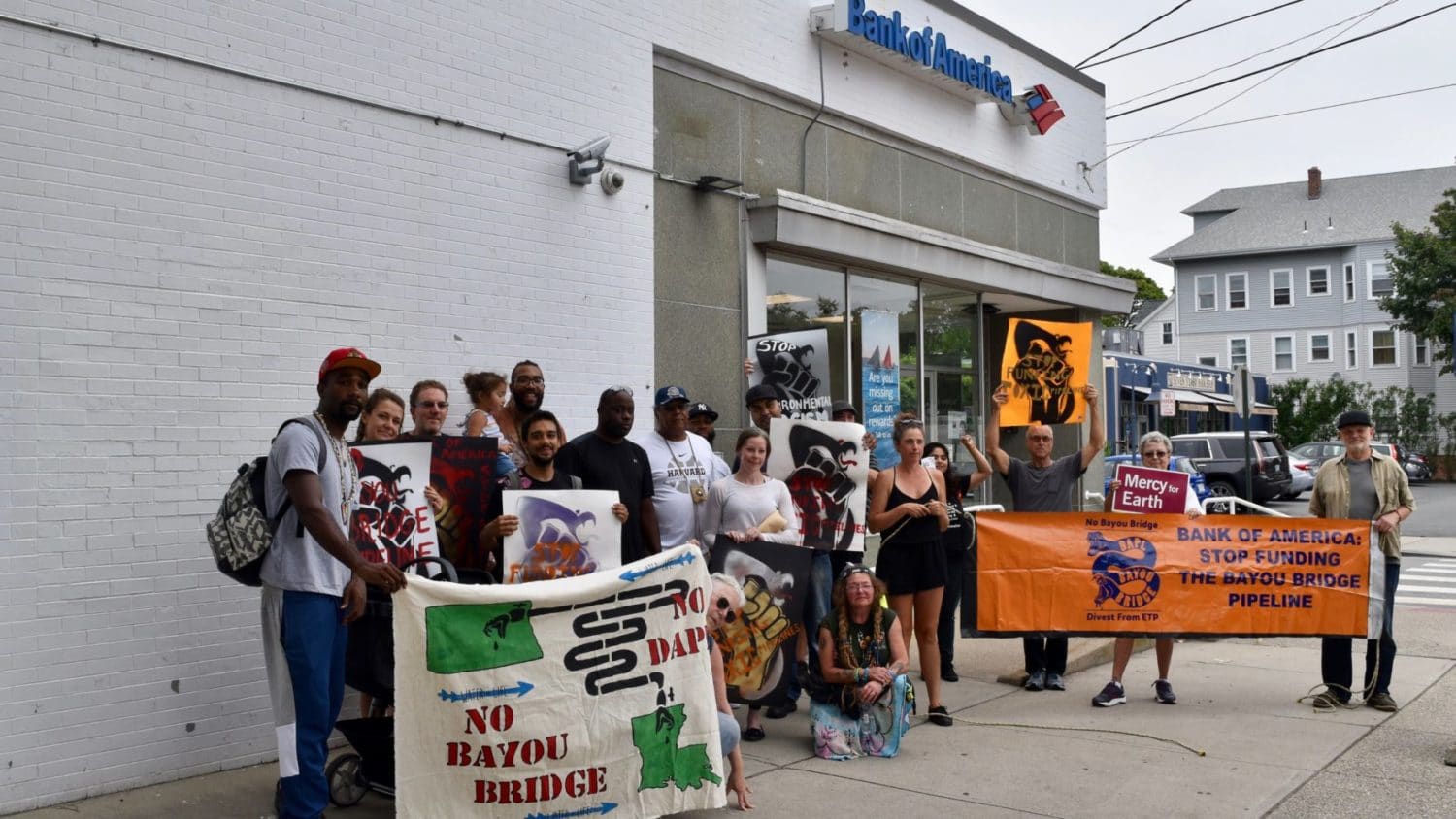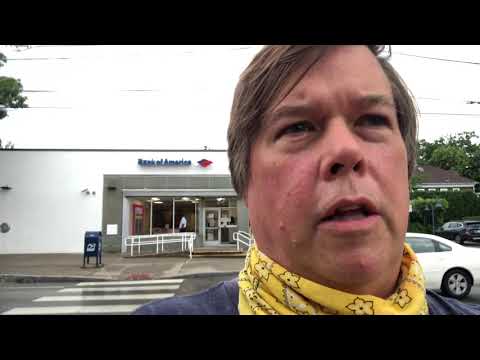What is greenwashing? On the Save The Bay/ Bank of America team-up
“We are thrilled to welcome Bank of America as a sponsor for our volunteer program.” Bank of America finances some of the most controversial pipeline projects across the continent, including the Bayou Bridge, Mountain Valley, Line 3, Atlantic Coast, Mariner East and the Keystone XL pipelines. Bank of America also profits from private prisons and immigration detention facilities. Bank of
July 14, 2020, 10:43 am
By Steve Ahlquist
“We are thrilled to welcome Bank of America as a sponsor for our volunteer program.”
Bank of America finances some of the most controversial pipeline projects across the continent, including the Bayou Bridge, Mountain Valley, Line 3, Atlantic Coast, Mariner East and the Keystone XL pipelines.
Bank of America also profits from private prisons and immigration detention facilities. Bank of America is a financier of GEO Group and CoreCivic, two of the biggest private prison companies in the United States. [Update: Vox reports: Bank of America cuts ties with the private prison industry]
And now Bank of America is supporting Save the Bay‘s 2020-2021 volunteer program.
“We are thrilled to welcome Bank of America as a sponsor for our volunteer program,” said Jonathan Stone, Save The Bay Executive Director in a press release. “Save The Bay was founded by volunteers, and volunteers continue to be vital to our organization’s success. We look forward to strengthening the program through this new partnership.”
Update: What is Greenwashing?
UPDATE:
Jonathan Stone replies:
“Our partnership with Bank of America is based on the relationship we have with their employees. For years, corporate employee teams have taken the initiative to lend a helping hand at our shoreline cleanups and dune grass plantings, to lead International Coastal Cleanup events, and other volunteer opportunities.
“These employee volunteers care deeply, as we do, about protecting and improving Narragansett Bay, and this new initiative reflects the commitment of these individuals.
“We are dedicated to strengthening our relationship with the local volunteer community, and this new partnership will not only enable us to organize and deliver more volunteer opportunities for the betterment of the Bay, but also further engage those who are dedicated to local environmental efforts.”
Going back to the original press release, nowhere are the employees of Bank of America mentioned. Instead, there’s this from Bill Hatfield, Market President for Bank of America in Rhode Island:
“Bank of America is committed to improving the environment for the future of Rhode Island. By supporting the work of strong local partners like Save The Bay, we can protect an important natural resource that provides jobs, recreation and billions of dollars for the regional economy.”
Hatfield’s statement is all about Bank of America marketing itself as concerned about the environment and about the economy.
Also, nowhere in Stone’s comment is there any mention of Bank of America’s support for fossil fuel companies.
Save the Bay was founded in 1970 to “work toward a fully swimmable, fishable, healthy Narragansett Bay, accessible to everyone and globally recognized as an environmental treasure.”








